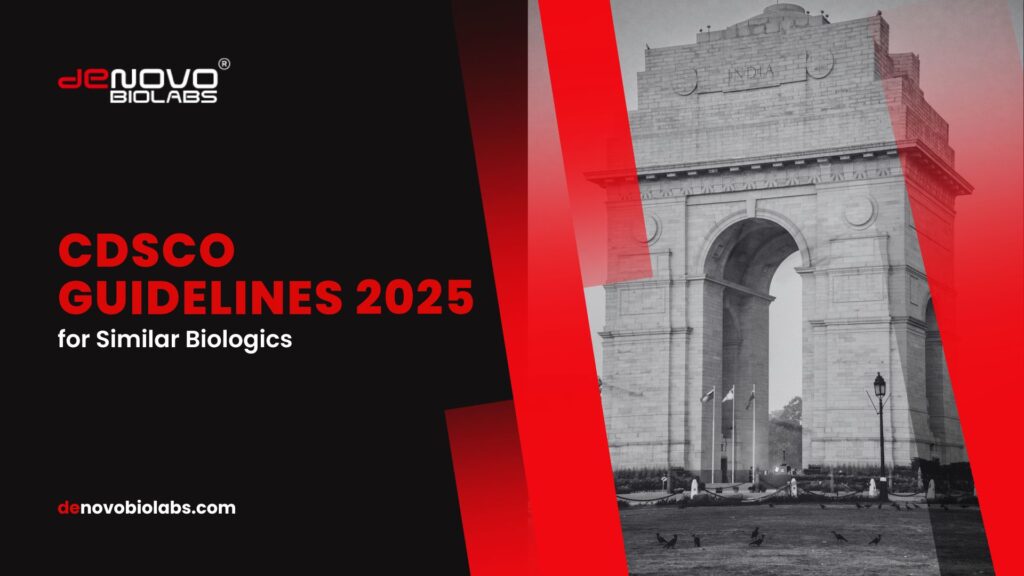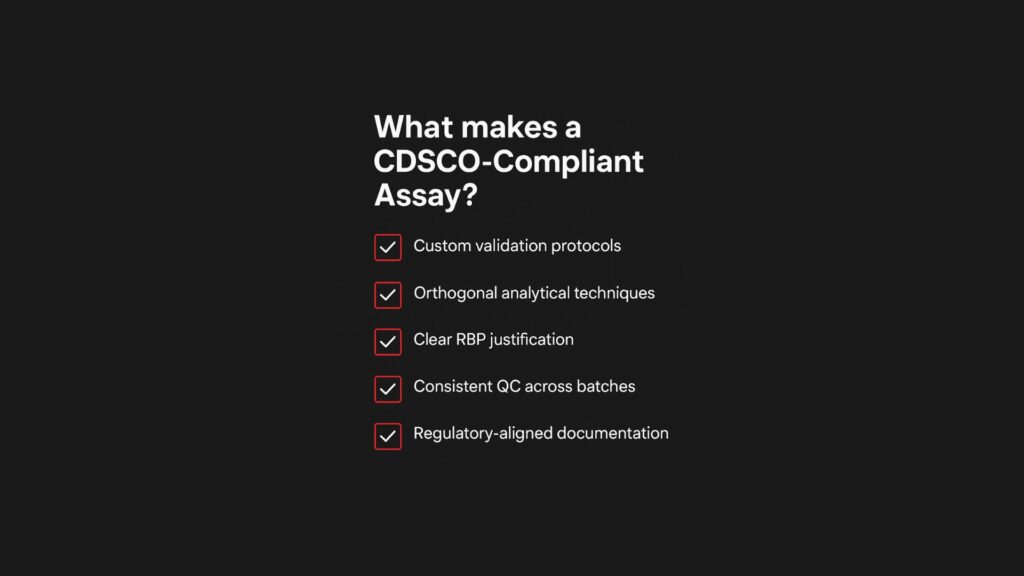
The Central Drugs Standard Control Organization (CDSCO) has released its 2025 draft revision of the “Guidelines on Similar Biologics” for marketing authorization in India. This update brings India’s biosimilar regulatory landscape in closer alignment with global standards set by organizations like the WHO, EMA, and USFDA. For contract research organizations (CROs), biopharma companies, and biosimilar developers, these updates are more than just a policy shift, they mark a pivotal evolution in how biosimilars are assessed, validated, and approved.
In this blog, we break down the most critical aspects of the CDSCO 2025 draft, and offer insights into what biosimilar developers should do to stay compliant, competitive, and ahead of the curve.
1. Key Themes
The new guidelines focus on:
- Orthogonal analytical tools to demonstrate biosimilarity
- Reduced emphasis on in vivo animal studies, aligned with 3Rs (Replace, Reduce, Refine)
- Expanded focus on in vitro assays and next-generation analytical methods
- Improved clarity around the use of Reference Biological Products (RBP)
- Statistical rigor for establishing similarity ranges

These changes reflect a more science-driven, globally harmonized framework for biosimilar assessment.
2. The Shift to Analytics
CDSCO is clearly moving towards analytical comparability as the foundation for biosimilar approval. Manufacturers must now:
- Use orthogonal techniques to assess Critical Quality Attributes (CQAs)
- Apply statistical models (e.g., min-max, mean ± xSD, tolerance intervals) to establish similarity
- Perform detailed molecular, functional, and physicochemical characterization
“Did you know? 70% of biosimilar rejections globally are due to insufficient assay validation.”
3. Reduced Need for Animal Studies
The new draft introduces flexibility in preclinical requirements:
- In vitro data can replace in vivo studies if sensitivity and specificity are high
- Animal studies may be waived entirely if analytical similarity is convincingly demonstrated
This move not only aligns with international norms but reduces development costs and timelines.
4. Clinical Data
While clinical trials remain essential, the 2025 draft allows for tailored clinical packages:
- Confirmatory PK/PD studies are prioritized
- Full-scale efficacy studies may be waived under specific conditions
- Immunogenicity assessments are a must
If biosimilarity is well-demonstrated analytically and nonclinically, developers can justify reduced clinical loads.
5. Better Defined Role of the RBP
The updated guidelines clarify that:
- RBPs (Reference Biological Products) must come from an ICH-approved country (e.g., US, EU, Japan, Australia)
- The same RBP must be used across all comparability exercises
- RBP selection must be scientifically justified and documented

6. What this means for Biosimilar Developers?
Developers must now focus on:
- Strong assay design and validation (ELISA, ADA, NAb, potency)
- Consistency across batches and processes
- Using CHO cell systems and in-house reference standards effectively
Key Takeaway: Assay customization is no longer a bonus—it is a regulatory expectation.
7. How Denovo Biolabs Can Help?
Denovo Biolabs has already aligned its biosimilar assay services with CDSCO’s evolving standards:
- Validated ELISA kits for CHO-based biosimilars
- Clone-specific antibody assays
- Immunogenicity assay development (ADA, NAb)
- Tech transfer, documentation, and regulatory alignment
- Support for CDSCO-compliant validation and QC packages
Conclusion
India’s regulatory environment for biosimilars is advancing rapidly—and with it, the expectations for data integrity, assay precision, and risk-based approaches. CDSCO’s 2025 guidelines offer a flexible yet rigorous pathway, but only for those prepared to meet its scientific demands.
Biosimilar developers should act now. Review existing assay methods, validate with next-gen analytics, and partner with CROs who are already operating at global regulatory standards.
Need help preparing your assays for CDSCO 2025?
Reach out to Denovo Biolabs for end-to-end support in ELISA development, validation, and compliance.

Luciano Noey
3 Jun 2025You approach each topic with such care and respect. It’s clear you truly value your readers’ time and trust.
Lashawna Muehleisen
4 Jun 2025Even in a sea of content online, your work continues to feel distinct and necessary. Thank you for your dedication.
b"asta binance h"anvisningskod
3 Feb 2026Thanks for sharing. I read many of your blog posts, cool, your blog is very good.